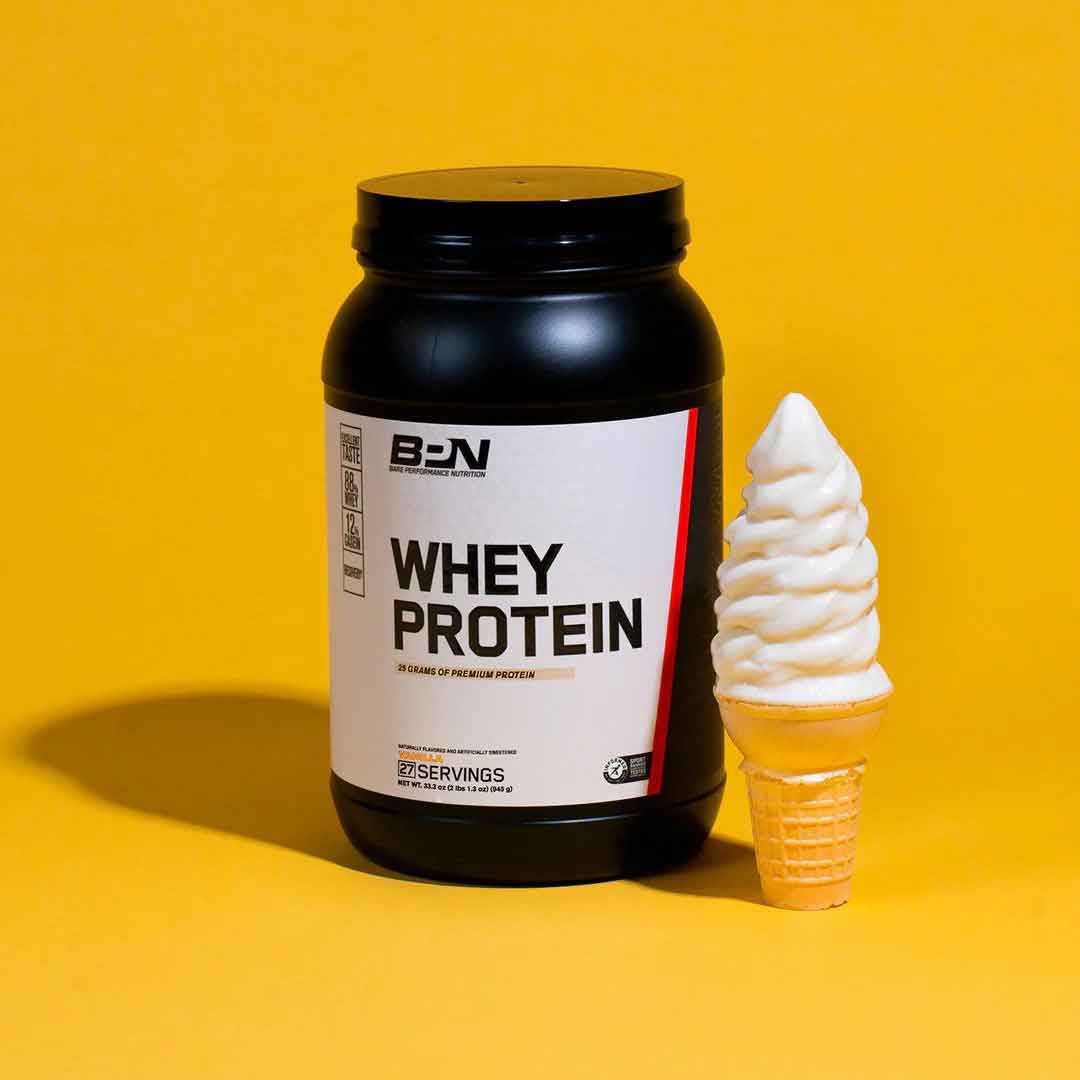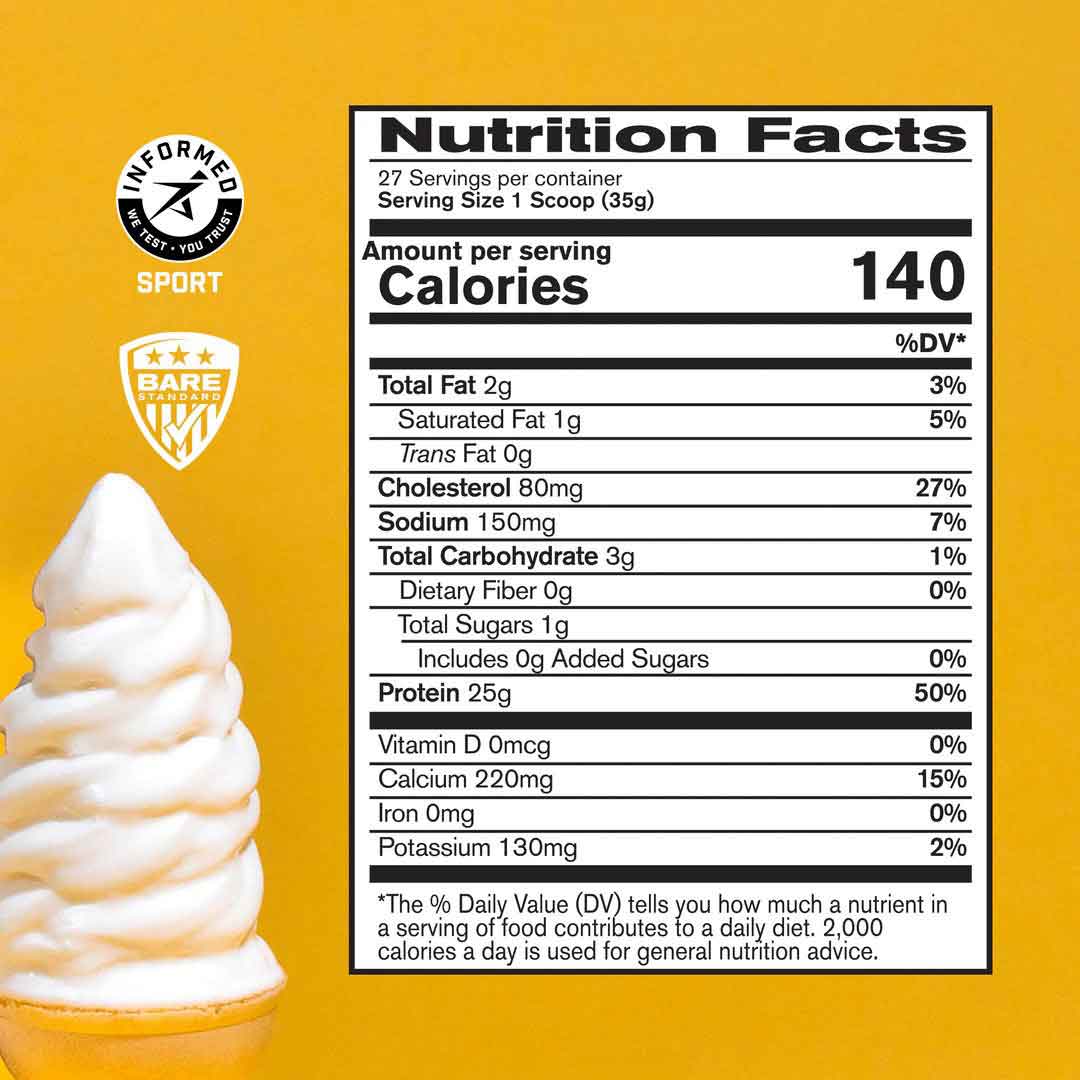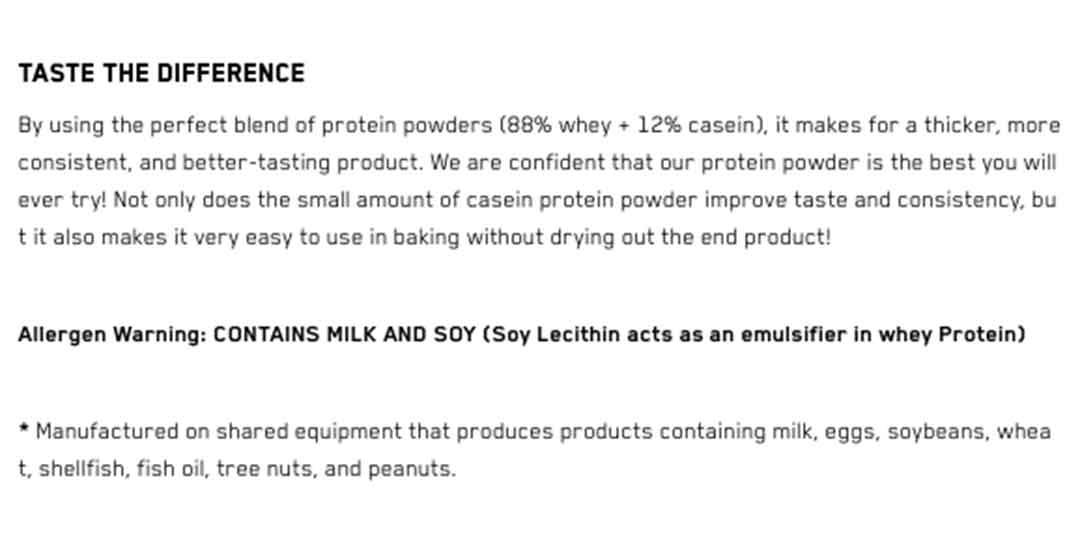BPN Protein Review
Written by Jack Schrupp and reviewed by Ella McGonagle, M.S. Nutrition
This in-depth BPN protein review covers the ingredients, Nutrition Facts, and much, much more. Find out whether or not BPN protein is right for you.
This in-depth BPN protein review covers the ingredients, Nutrition Facts, and much, much more. Find out whether or not BPN protein is right for you.

BPN makes several different types and flavors of protein powder. For the sake of simplicity, I am going to review their best-selling Vanilla Whey Protein Powder.
BPN protein powder is a protein supplement, so I am going to start my BPN whey protein review by talking about the Nutrition Facts. 1 serving of BPN Vanilla Whey Protein Powder contains 140 calories, 2g of total fat, 3g of total carbohydrates, 2g of sugar, and 25g of protein. From a nutritional standpoint, this looks like a healthy source of dietary protein. There is a high protein to calorie ratio, meaning you get a lot of bang for your buck, and no Added Sugar. The Nutrition Facts are really only the tip of the iceberg when it comes to protein powder, however. In order to understand if a protein powder is actually good for you, you have to look at the ingredients.
The ingredients list is by far the most important indication of whether or not a protein powder is good for you. There are 8 ingredients in BPN Vanilla Whey Protein Powder, which is not a great sign. Generally speaking, when it comes to protein powder, the fewer ingredients the better.

whey protein
The first ingredient in BPN Vanilla Whey Protein Powder is whey protein concentrate, which, according to BPN, makes up 88% of the total protein content. According to the U.S. Food and Drug Administration (FDA), there is no official, legal definition for a whey protein concentrate. That said, it is generally understood to be any product made by removing the non-protein components of milk, thereby concentrating the protein components to higher levels. If you are familiar with protein supplements, you will know that many are made with whey protein isolates. The main difference between an isolate and a concentrate is that a concentrate has less protein and more carbs (lactose) and fat per serving. For this reason, milk protein concentrates are notorious for causing side effects.
Because they contain lactose (the sugar in dairy), milk protein concentrates are known to cause digestive issues, especially for people with lactose intolerance. Lactose intolerance occurs when the body does not make enough lactase, the enzyme needed to digest lactose. It is estimated that roughly two thirds of the world’s population has some degree of lactose intolerance, which makes sense because humans no longer “need” the ability to digest milk after breastfeeding. Common symptoms include bloating, gas, and diarrhea.
I will not go into the details, but protein isolates, although they contain less lactose, are not easy to digest either. They undergo additional mechanical and sometimes chemical processing, which means that what you end up putting into your body looks nothing like real food. This is a problem because the less an ingredient looks like food, the harder it is to digest (more about this below).
casein protein
The second ingredient in BPN Vanilla Whey Protein Powder is Native Micellar Casein. Like whey protein, casein protein is a by-product of cheese and yogurt-making. Unlike most whey proteins, it is also not subjected to any chemical or enzymatic processing, meaning it is in its natural form. This is good news for your gut. Unfortunately, however, casein protein only constitutes 12% of the total protein content in BPN Vanilla Whey Protein Powder.
food additives
The rest of the ingredients in BPN Vanilla Whey Protein Powder are food additives. Although not necessarily bad for you in small quantities, additives can add up quickly (especially if you drink a protein shake every day) and cause gastrointestinal (GI) side effects like bloating, constipation, diarrhea, gas, and stomach pain. This is because food additives are hard to digest and sit in your gut for longer than food should, which gives your gut bacteria more time to eat. As they eat, these bacteria produce gas, causing bloating and stomach pain. Gas also slows colonic transit (the amount of time it takes food to travel through the colon), and can lead to constipation. Worst of all, in the long term, food additives disrupt regulatory pathways in the intestine, which can result in the development of inflammatory bowel disease (IBD) and systemic inflammatory disorders.
When it comes to identifying food additives and artificial sweeteners, go with your gut. 😉 As a rule of thumb, they are the ingredients that you cannot pronounce. In this case, the food additives include Natural Flavor, Salt, Sucralose (artificial sweetener), Xanthan Gum (thickener), Cellulose Gum (thickener), Guar Gum (thickener). The fact that there are 3 gums in BPN protein is pretty gross, and a total bummer. Adding gums to protein powder is a cheap and utterly unnatural way to replicate the creaminess of dairy (remember, whey has been stripped of most of the tasty fats and carbohydrates).
Did you know that while food manufacturers are required to disclose their ingredients, flavor manufacturers are not. They can add solvents, preservatives, emulsifiers, carriers and other additives to a flavor that qualifies as “natural” under current regulations. This means that the Natural Flavors in BPN protein could just be a catch-all term for everything that a manufacturer would rather not spell out on the ingredient list.

It is worth mentioning that BPN also contains soy-lecithin, even though it does not appear on the ingredient list.
CONTAINS MILK AND SOY (Soy Lecithin acts as an emulsifier in whey Protein)
I am not sure why BPN does not declare soy lecithin on the ingredient list itself. It is possible that this ingredient qualifies as an incidental additive (an ingredient present in a food at insignificant levels that does not have any technical or functional effect in that food), but that is unlikely, as BPN clearly states that it acts as an emulsifier. Regardless, this is yet another additive to add to the list. To put it simply, soy lecithin is a group of fatty substances derived from soybeans. It is added to foods like protein powder to create a smooth, creamy texture, to prevent separation, and to improve mix-ability. Like the other additives, it looks nothing like real food, and therefore poses a serious risk to your gut health.
artificial sweeteners
All BPN protein powders are sweetened with artificial sweeteners like Sucralose, which are among the most harmful additives in the long term as they alter the composition of your gut microbiota (the collection of microorganisms that help you digest food). This can lead to serious, chronic GI problems, widespread inflammation, and permanent damage to the gut microbiome. Some sweeteners are also poorly absorbed by the gut (meaning they feed those hungry gut bacteria), and cause diarrhea because they draw water into your intestine. Now you finally have something to blame for those post-protein shake trips to the bathroom!
Taste is so subjective that I hesitate to include it in this BPN protein review. A protein powder that one person loves might make another person gag, so if you read product reviews on Amazon, you will find both 5 star reviews and 1 star reviews of the same exact recipe. For the sake of this BPN protein powder review, however, I will share my thoughts on how BPN protein tastes and mixes.
BPN Vanilla Whey Protein Powder has a smooth texture, and mixes well with both water and milk. I mixed it in a shaker bottle, and did not notice any clumps or grit. I also liked the taste a lot, as it was not too sweet (despite containing sucralose). The vanilla flavor was underwhelming, but pleasant. If it did not contain so many food additives, I would drink BPN protein every day.
BPM protein powder is a popular protein powder intended to help people achieve their wellness goals. As you just learned, however, it is not good for you. Its biggest weakness, which is a weakness for most protein powders, is that it is so processed that it hardly resembles real food.
This is the point in the article where I shamelessly pitch my own protein powder company, not because I just want to sell you something, but because it is a better-for-you alternative to BPN. Hi! My name is Jack, and I am the founder of drink wholesome. A few years ago, I was sick and tired of protein supplements that upset my stomach, so I made my own with simple, real food ingredients.
Instead of protein concentrates or isolates, I use egg whites and almonds. Egg whites are simply pasteurized and dried before becoming protein powder. Almonds are just roasted, pressed, and ground. Minimally-processed ingredients like these are a gut-friendly, natural alternative to protein concentrates and isolates. Moreover, unless you have a sensitivity or allergy to eggs, egg white protein is the best protein for your gut. Egg whites are low in fiber, low-FODMAP, and naturally alkaline. Our customers have experienced fewer digestive issues with egg white protein than with any other type of protein. If you cannot eat eggs, our almond protein powder is easy to digest too, and a great option for vegans.
Whey Protein Concentrate, Native Micellar Casein, Natural Flavor, Salt, Sucralose, Xanthan Gum, Cellulose Gum, Guar Gum.
As you can clearly see, drink wholesome is additive-free and dairy-free, which is great news for your gut. The “gut,” also known as the gastrointestinal (GI) system, is made up of several organs including the stomach, small intestine, large intestine, and colon. The term “gut microbiome” refers to the microorganisms living in your intestines, and the term “gut health” describes the function and balance of these organisms. You may not have known that the gut does much more than just help you to digest food. It also protects against pathogens, educates the immune system, and affects directly or indirectly most of our physiologic functions.
Several recent studies have examined the role of the gut in diagnosis, prognosis, and treatment of a variety of diseases, and have concluded that it plays an integral role in overall health. Given the important role that your gut plays, you should consider the ways in which the foods you eat affect it. You should also consider the potentially enormous impact that protein powder can have on your gut microbiome. Protein powder is not just any food, it is a food that you probably consume regularly, if not daily.
“I’ve had Crohn’s disease for 20+ years and it’s always been hard to find a protein powder my stomach can handle. I’ve had no problem digesting drink wholesome AND it tastes great. I highly recommend this protein powder if you have IBS or Crohn’s.” – Jesse
Read more reviews or take the quiz.
This content is not intended to be a substitute for professional medical advice, diagnosis, or treatment. drink wholesome is not intended to diagnose, treat, cure or prevent any disease.